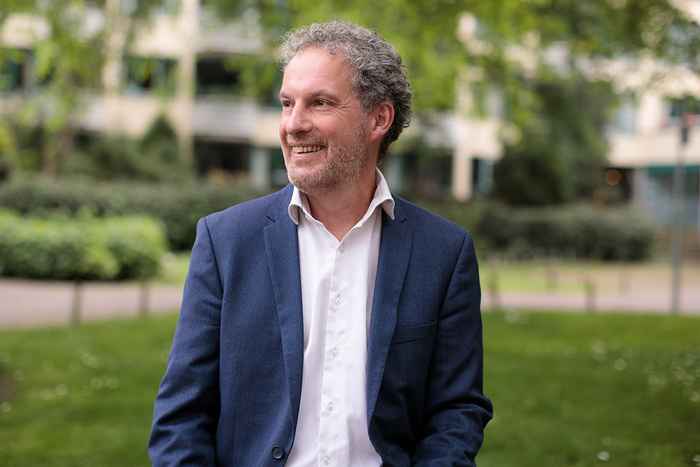Huub Dijstelbloem named new director of Institute for Advanced Study
30 June 2021
‘I am very happy that Huub Dijstelbloem has committed himself to the IAS for the next five years,’ says Rector Magnificus Karen Maex. ‘He is a driver for innovation. He was one of the initiators of both Science in Transition and the Platform for the Ethics and Politics of Technology. With his interdisciplinary approach at the interface of science, technology and society, and his extensive knowledge and experience, he can build bridges between people and disciplines both inside and outside the UvA, and use the IAS to put new complexity issues and methods on the agenda.'
Perspectives on complexity
The IAS offers scientists a haven in which to work – across the boundaries of disciplines – on important fundamental and complex issues in society. Maex: 'Under the leadership of Peter Sloot, the IAS has built a very strong reputation and an extensive network. The focus was mainly on the science-oriented methodology of system dynamics, in particular on complex systems. This methodology is now being successfully applied in various areas within the UvA. The appointment of Dijstelbloem will enrich the IAS with a new, more humanities- and social sciences-based perspective on complexity.'
'The IAS is an institute that challenges,' says Dijstelbloem. ‘It is really impressive to see what has been achieved in the first five years. I look forward to further developing the IAS and working on complex problems. I see it as an important task to embed the institute even more broadly within the UvA and to have it contribute to important societal issues.'
About Huub Dijstelbloem
Dijstelbloem has been professor of Philosophy of Science and Politics at the UvA's Faculty of Humanities since 2014. In addition, since 2009, he has been a senior researcher and project coordinator at the Dutch Scientific Council for Government Policy (WRR). He previously worked as a programme coordinator at the Rathenau Institute. Dijstelbloem is one of the initiators of the UvA’s Platform for the Ethics and Politics of Technology and co-founder of Science in Transition. He is also a member of the KNAW advisory committee on Roots and Prevention of Inappropriate Behaviour in Academia. Dijstelbloem will combine the directorship of the IAS with his position as a professor in the Philosophy department.
In his research and teaching, Dijstelbloem brings together philosophy of science, philosophy of technology and political philosophy. He studied Philosophy and Science and Tecnhnology Studies at the UvA and also studied at the Center de Sociologie de l'Innovation at the École Nationale Supérieure des Mines de Paris. He has previously been affiliated with the University of California San Diego and Eduardo Mondlane University in Maputo, Mozambique. Dijstelbloem has published a large number of books and articles, including on international security, border control technology, variations in European cooperation, food policy, scientific authority and vigilance in democracy. He has also contributed to various WRR reports and Rathenau publications. His book Borders as Infrastructure: The Technopolitics of Border Control (MIT Press) will be published this year.
